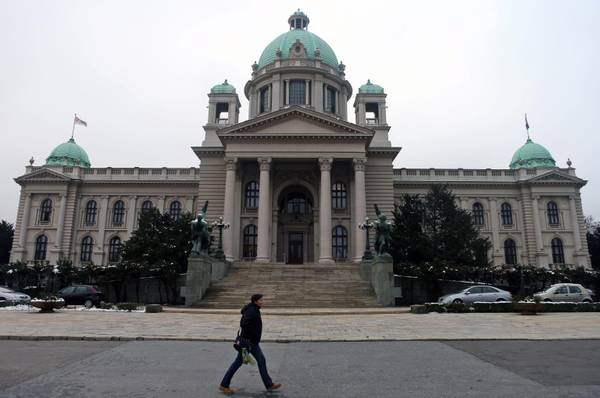(ANSA-AP) - BELGRADE - When hundreds of video cameras with
the power to identify and track individuals started appearing in
the streets of Belgrade as part of a major surveillance project,
some protesters began having second thoughts about joining
anti-government demonstrations in the Serbian capital. Local
authorities assert the system, created by Chinese
telecommunications company Huawei, helps reduce crime in the
city of 2 million. Critics contend it erodes personal freedoms,
makes political opponents vulnerable to retribution and even
exposes the country's citizens to snooping by the Chinese
government.
The cameras, equipped with facial recognition technology, are
being rolled out across hundreds of cities around the world,
particularly in poorer countries with weak track records on
human rights where Beijing has increased its influence through
big business deals. With the United States claiming that Chinese
state authorities can get backdoor access to Huawei data, the
aggressive rollout is raising concerns about the privacy of
millions of people in countries with little power to stand up to
China.
"The system can be used to trail political opponents, monitor
regime critics at any moment, which is completely against the
law," said Serbia's former commissioner for personal data
protection, Rodoljub Sabic. Groups opposed to Serbian President
Aleksandar Vucic say police are leaking video of protests to
pro-government media, which publish the images, along with the
identities of participants. Vucic himself has boasted the police
have the capability to count "each head" at anti-government
gatherings.
During a recent rally, protesters climbed up a pole and
covered a camera lens with duct tape scrawled with the word
"censored." Serbian police deny any such abuse of the Huawei
system, which will eventually encompass 1,000 cameras in 800
locations throughout Belgrade.
Huawei said in a statement that it "complies with all
applicable laws and regulations" in Serbia and anywhere else it
does business.
While facial recognition technology is being adopted in many
countries, spurring debate over the balance between privacy and
safety, the Huawei system has gained extra attention due to
accusations that Chinese laws requiring companies to assist in
national intelligence work give authorities access to its data.
As a result, some countries are reconsidering using Huawei
technology, particularly the superfast 5G networks that are
being r olled out later this year. Still, Huawei, which denies
accusations of any Chinese government control, has had no
trouble finding customers eager to install its so-called Safe
Cities technology, particularly among countries that China has
brought closer into its diplomatic and economic orbit. Besides
Serbia, that list includes Turkey, Russia, Ukraine, Azerbaijan,
Angola, Laos, Kazakhstan, Kenya and Uganda, as well as a few
liberal democracies like Germany, France and Italy. The system
is used in some 230 cities, exposing tens of millions of people
to its screening. (ANSA-AP).
© Copyright ANSA - All rights reserved














